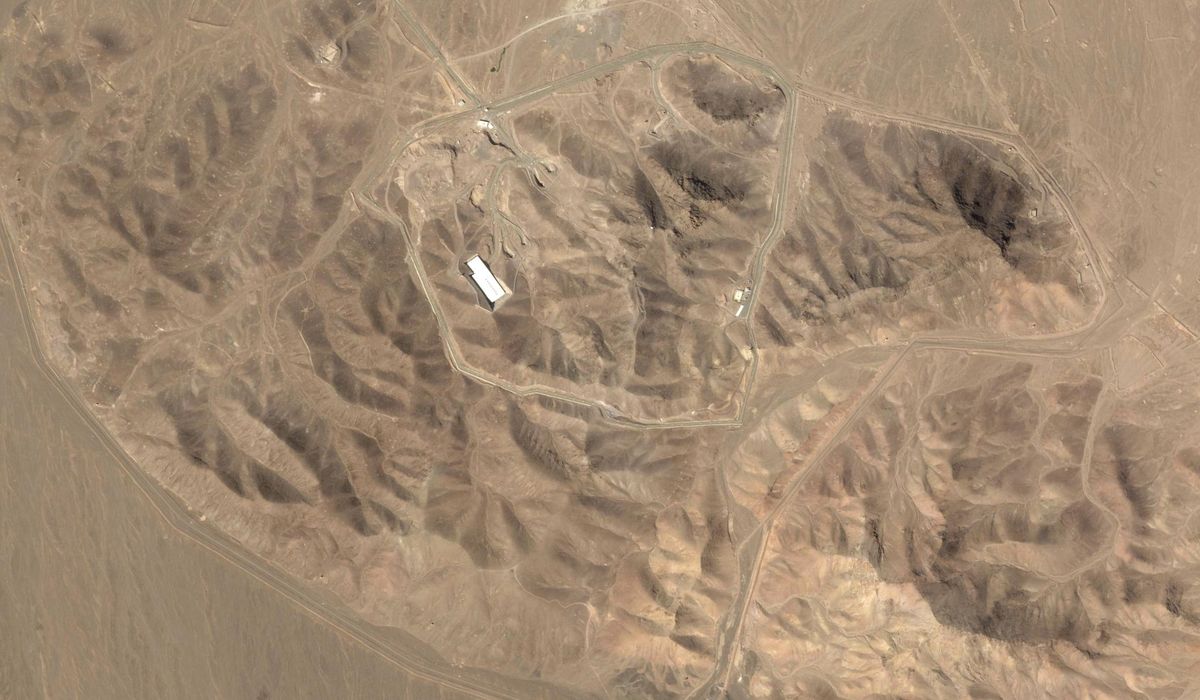


The board of governors for the U.N.’s nuclear watchdog declared this week that Iran is not following its atomic obligations, calling on the Islamic Republic to do all it can to provide transparency for its enrichment program.
In a resolution issued Thursday, the U.N.’s International Atomic Energy Agency found that Iran had failed to offer sufficient transparency concerning an investigation into uranium traces found at several locations where Iran has not disclosed an enrichment site. Some Western leaders say the uranium traces point to Iran having secret nuclear weapons facilities.
The resolution, first seen by The Associated Press, says Iran’s failure to provide clear transparency on its enrichment sites constitutes a violation of its obligations under the Nuclear Non-Proliferation Treaty. The agency’s board members called on Iranian leaders to immediately provide answers to investigators and to ensure transparency during inspections.
“Iran’s many failures to uphold its obligations since 2019 to provide the Agency with full and timely cooperation regarding undeclared nuclear material and activities at multiple undeclared locations in Iran … constitutes non-compliance with its obligations under its Safeguards Agreement,” the resolution reads.
This week’s resolution is the first time the agency has found Iran in violation of its nuclear obligations in more than two decades and paves the way for the U.N. to impose wide-ranging sanctions on the Islamic Republic.
Nineteen nations on the board voted for the resolution. Russia and China opposed, 11 nations abstained, and two did not cast a vote.
SEE ALSO: U.S. pulling nonessential personnel out of Middle East amid growing tensions with Iran
Iran said the resolution was politically motivated, but affirmed that it would cooperate with the IAEA.
In televised remarks following the U.N. vote, Atomic Energy Organization of Iran spokesperson Behrouz Kamalvandi said the Islamic Republic would provide investigators with new information on a new enrichment site.
The organization did not provide information on where the facility would be located or if it has already been constructed. Mr. Kamalvandi also said Iran would build advanced centrifuges at Fordo, one of the nation’s enrichment facilities.
“The implication of this is that our production of enriched materials will significantly increase,” Mr. Kamalvandi said.
The resolution comes as U.S. and Iranian negotiators debate the future of Tehran’s enrichment program in ongoing nuclear talks. U.S. negotiators have publicly declared that any nuclear deal will include the total elimination of Iran’s enrichment program, while Iran says its enrichment infrastructure is an essential part of its sovereignty.
Iran’s enrichment program has intensified over the last seven years since President Trump unilaterally left the Joint Comprehensive Plan of Action in 2018. Following the U.S. exit, Iran rapidly increased its enrichment pace and is now closer than ever to a nuclear weapon, according to nuclear watchdogs.
However, Iran insists that its nuclear program is completely peaceful, assuring international watchdogs that it is used for only commercial purposes. The IAEA’s resolution from this week found that Iran’s lack of transparency makes it difficult to determine whether its nuclear program is peaceful.
U.S. rhetoric surrounding Iran’s enrichment program has been aggressive, with Mr. Trump promising to conduct coordinated strikes with Israel should negotiations fall through. However, Mr. Trump seems determined to make a deal, even warning Israel not to launch a preemptive strike without U.S. approval.
Still, reports have circulated that Israel is preparing to strike at Iran’s nuclear infrastructure, with or without the U.S. According to reports, concerns that Israel would conduct targeted strikes on Iran’s enrichment facilities contributed to the U.S.’s decision to pull its diplomats out of Baghdad Wednesday.
Iranian military officials met this week to discuss response options to a possible Israeli strike. Iran has also made preparations for attacks on its nuclear infrastructure at its underground enrichment facilities.
Iranian and U.S. negotiators are expected to conduct their sixth round of talks in Oman on Sunday.
• This article is based in part on wire reports.
• Vaughn Cockayne can be reached at vcockayne@washingtontimes.com.
